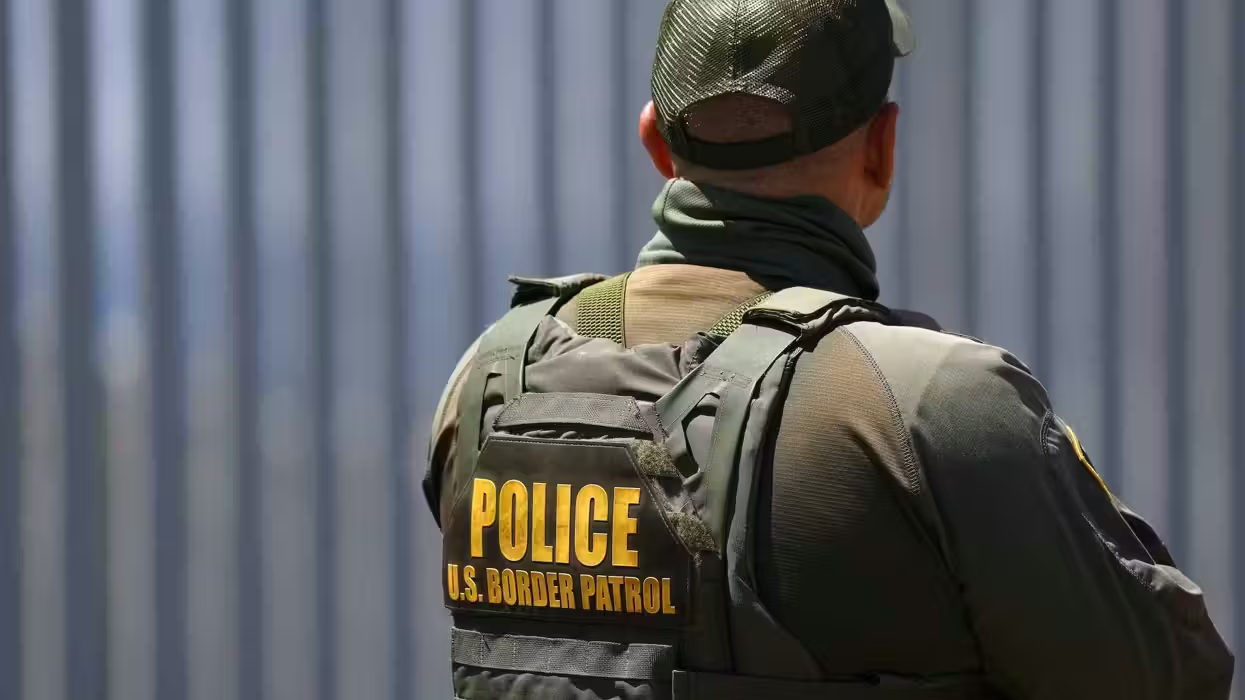
© 2026 Blaze Media LLC. All rights reserved.
 WASHINGTON (AP) -- House Republicans controlling the Transportation Security Administration's purse strings are moving to cut off funding for those advanced airport scanners that have sparked outrage over their revealing images of travelers' bodies.
WASHINGTON (AP) -- House Republicans controlling the Transportation Security Administration's purse strings are moving to cut off funding for those advanced airport scanners that have sparked outrage over their revealing images of travelers' bodies.
Draft legislation released Thursday by the Appropriations homeland security subcommittee denies the Obama administration's $76 million request for an additional 275 of the scanners, which many travelers dislike because TSA employees can view full body images of travelers.
The GOP move wouldn't affect the 500 or so machines already in place at 78 of the nation's airports or the 500 just funded in a recent spending bill. Efforts are under way to solve the privacy concerns with new computer software. TSA currently gives passengers the option of a pat down in private - a choice that most people find even more intrusive.
Panel chairman Robert Aderholt, R-Ala., said his move was sparked by budgetary factors rather than protests from privacy advocates. And it comes as the TSA is trying hard to modify the machines so that they won't produce revealing images. Instead, the agency is trying out new software that would have the machines read the images and alert airport screeners when there's a potential weapon or other threat. The screener would then see the location of the threat as shown on a stick figure of the body.
That technology hasn't been proven yet, and with the new privacy software showing uneven results, Aderholt is refusing the fund additional machines.
"We don't want to skimp on security but we want to make sure that where we can make smart cuts, we do," Aderholt said.
The machines are aimed at detecting things like explosives and other threats that don't set off metal detectors. They follow an earlier generation of machines that puffed air at passengers that proved to be too fragile and expensive to maintain.
Defending the program, Homeland Security Department spokesman Adam Fetcher said that since early 2010 the full body scanners have led to the detection of nearly 210 prohibited, illegal or dangerous items at checkpoints nationwide.
Opponents of the machines took heart in the panel's decision.
"They're a nuisance. They're slow. And they're ineffective," said Rep. Jason Chaffetz, a longtime critic, adding that the machines aren't not used to screen visitors to high-profile targets like the White House or the Capitol. The bottom line is that ... they're just not as effective as a good ol' German shepherd."
Chaffetz won a 310-118 vote on the House floor last year to cut off funding for the machines but the administration and the Senate refused to go along. The likelihood of a similar outcome this year may have reinforced the decision to withhold the funds.
But advocates of the full body technology say that the alternative to the machines are even more intrusive pat downs - such as recent high-profile incidents in which a baby was patted down at the Kansas City airport and a 6-year-old was upset after being frisked at the New Orleans airport. They say people far prefer the full body screenings than a hand-on pat down.
"Now they will have to hand search more people. More hand search means a lot more expense than using the technology," said Peter Kant, Executive Vice President of Rapiscan Systems, one of the two companies that makes the machines. "Ninety-five-plus percent of people would rather be scanned than go through a pat down."
Kant was referring to a CBS News poll last year that also showed 81 percent of respondents support the full body scanners despite a concerted campaign by opponents.
The government has already spent about $1 billion on the machines. That big an investment ensures they probably aren't going anywhere.
And the machines have powerful advocates like Sen. Thad Cochran of Mississippi, the top Republican on the Senate Appropriations Committee. A Rapiscan plant in his state employs 20 people manufacturing the machines.
"The whole-body-imaging machines have something that (bomb-sniffing) dogs don't have," Chaffetz said. "Lobbyists."
Want to leave a tip?
We answer to you. Help keep our content free of advertisers and big tech censorship by leaving a tip today.
Want to join the conversation?
Already a subscriber?
more stories
Sign up for the Blaze newsletter
By signing up, you agree to our Privacy Policy and Terms of Use, and agree to receive content that may sometimes include advertisements. You may opt out at any time.
Related Content
© 2026 Blaze Media LLC. All rights reserved.
Get the stories that matter most delivered directly to your inbox.
By signing up, you agree to our Privacy Policy and Terms of Use, and agree to receive content that may sometimes include advertisements. You may opt out at any time.






